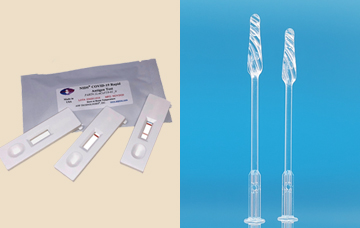In an era when artificial intelligence promises to transform medicine, there is simply no substitute for the judgment and experience of a trained physician when evaluating new research. That’s why so many busy physicians choose to contribute as peer reviewers, strengthening their profession while benefiting personally and professionally.
At first glance, the work of practicing physicians and peer reviewers does not seem to have much in common. Physicians spend their days providing patient-centered care, coordinating with teams, and staying up-to-date with the latest clinical guidelines, specialty association updates, and medical literature. But many doctors also discover the benefits of peer review of medical journals: work that may seem very different from everyday practice but that directly supports the science that guides it.
Related Clinical Research Webinar: Medical Research Webinar: AI, Building Trust, and the JAMA Vision
Peer review is silent, often solitary, and voluntary. It comes without the direct pressures of clinical care. And yet, modern medical practice advances in large part thanks to the work of peer reviewers. Many are physicians and lend their time and expertise to ensure that the science guiding patient care is accurate, rigorous and relevant.
The Many Benefits of Peer Review
Although peer review may seem like a thankless job, doctors who choose to perform peer reviews can experience a wide range of benefits, including:
- Boost professional credibility. Adding peer review experience to a LinkedIn profile or resume indicates recognized experience. After all, a journal editor would not select reviewers if they did not have the necessary knowledge or ideas.
- Opening doors to leadership opportunities. Consistent, high-quality reviews can lead to invitations to editorial boards, prestigious roles valued by hiring managers and promotion committees.
- Strengthening clinical and scientific advantage. Manuscript review keeps judgment sharp, knowledge up-to-date, and the scientific method top of mind.
- Expansion of professional networks. Providing rigorous and timely peer reviews is a great way to build relationships with editors and researchers while gaining early access to emerging studies.
- Advance in the profession while finding purpose. By contributing to the advancement of science while supporting other researchers, reviewers not only strengthen the quality of research but also gain a deep sense of satisfaction and pride.
- Stay at the forefront of the latest research. Reviewers get a front-row seat to cutting-edge studies before publication and make their mark by influencing what is shared with the world.
Why peer review is important
Peer reviewers strengthen the backbone of science by building trust in research. For physicians, the impact goes beyond improving an article or supporting other authors. Serving as a peer reviewer offers personal and professional rewards, but the ultimate reward is clear: an improved body of literature that advances medicine for all.
Become a reviewer
Do you want to become a peer reviewer? There are journals in almost all specialties of medicine. Consider connecting with editors to discuss your goal of joining a peer review panel. you can too nominate yourself or a colleague review for The Permanent Diarywhich is always open to receiving new peer reviewers from all areas of medicine. Review invitations are automatic, so you can accept or decline as you see fit.



